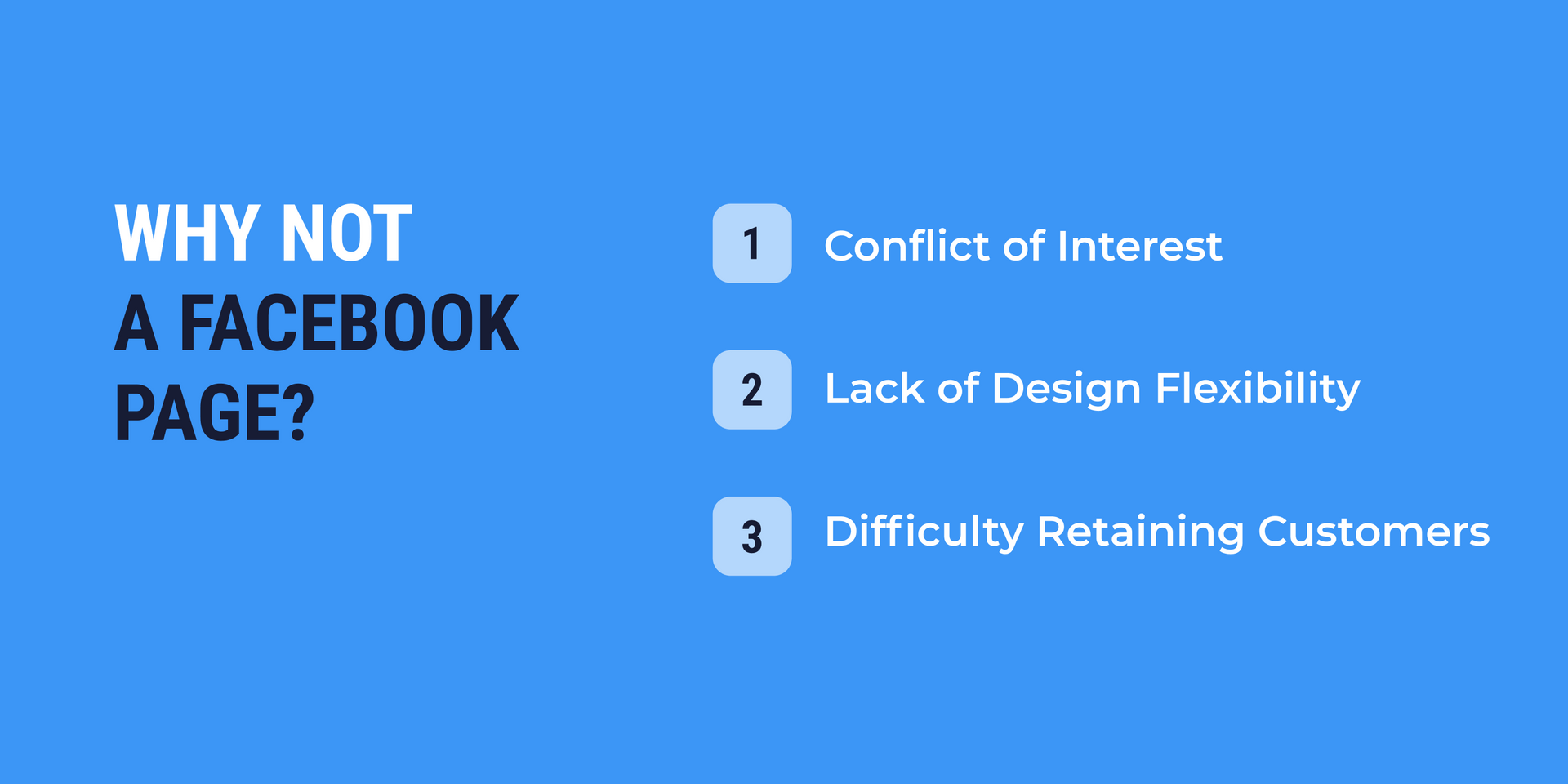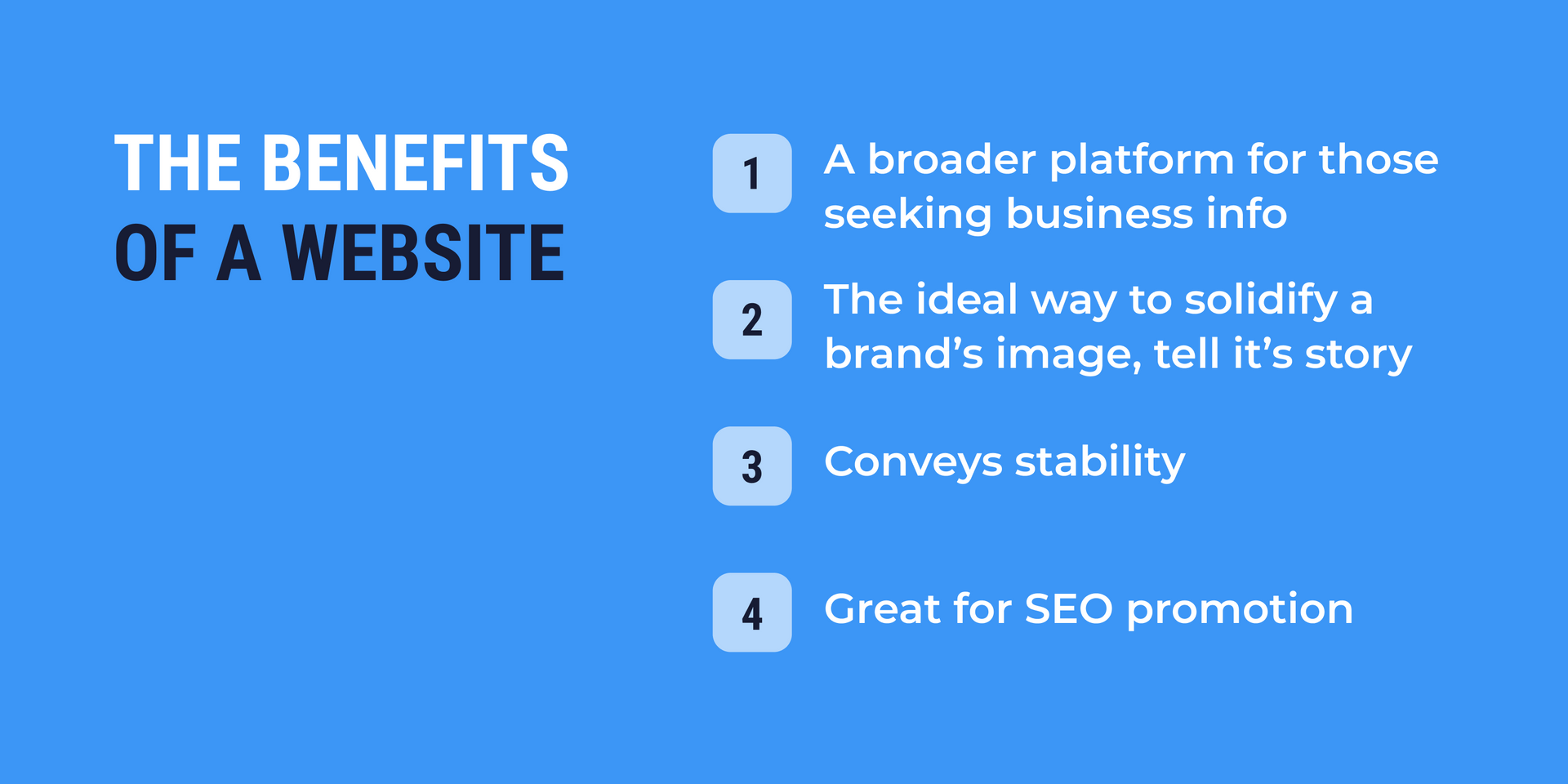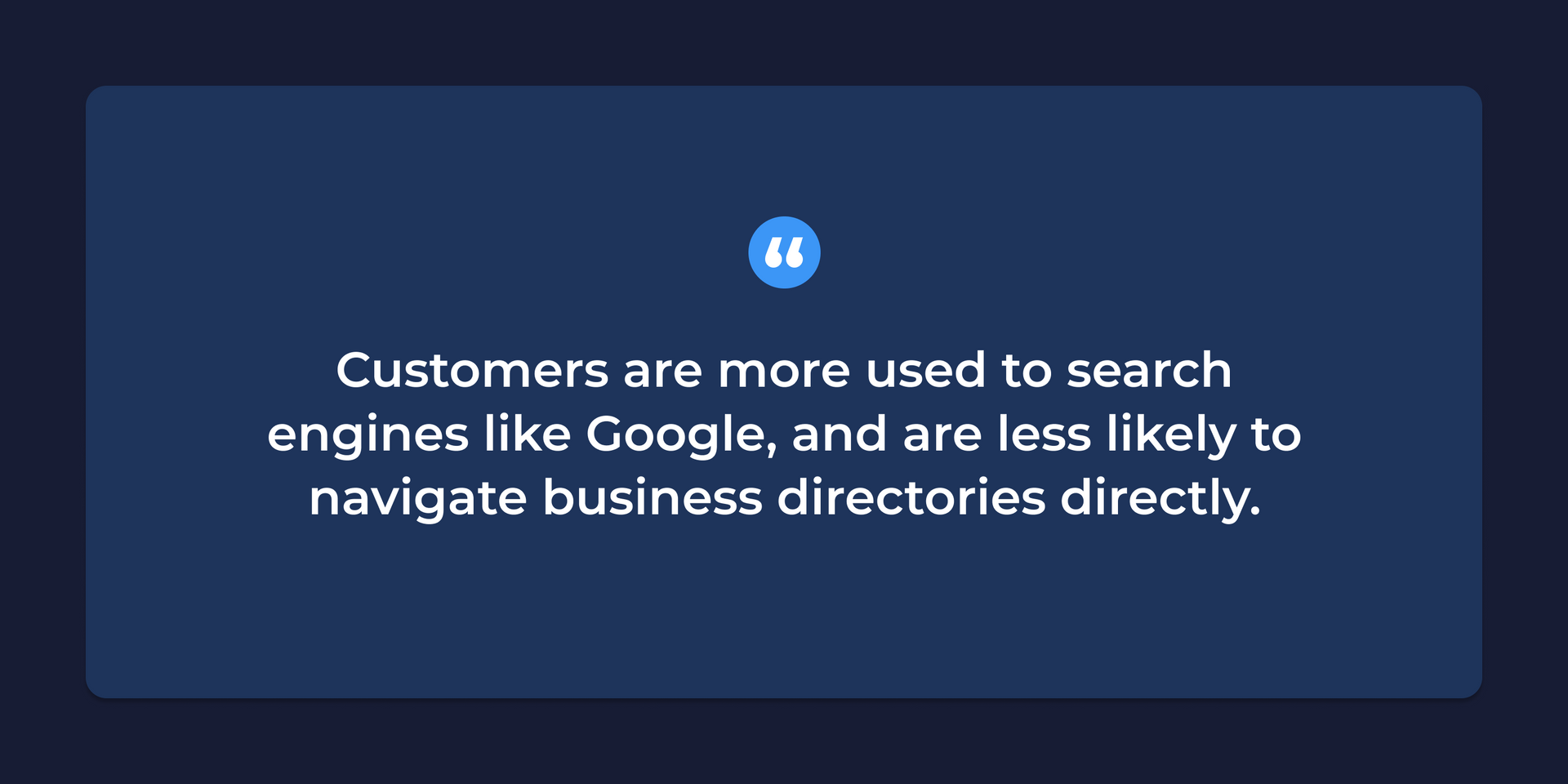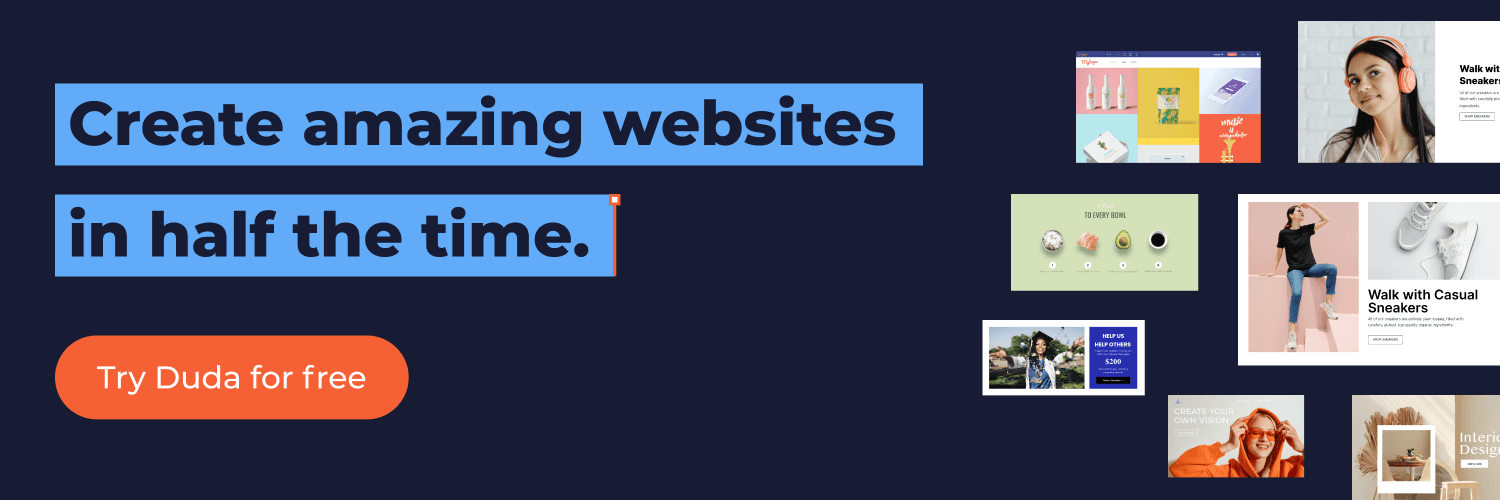In this content series, Scale and Thrive: Growth Insights for Agencies, by Agencies, we share proven tips and insights from agencies who scaled their operation and delivered proven growth. This blog post was written by Orel Y. Shalom, a successful agency owner with over a decade of experience in the field. Over the years, Orel has led more than 70 employees, producing over 10,000 websites for clients in a wide range of verticals.
Here’s the inevitable truth: In today's interconnected world, establishing a robust online presence is no longer just a luxury; it's a necessity for businesses of all sizes. Business owners need a comprehensive and tailored solution - and, as an agency owner, you need to make sure your clients know this.
Here are the techniques I like to use to explain clients why they need a website over a mere Facebook page, business listing, landing page, and more:
A Website Versus a Facebook Page
Some clients may argue that having a Facebook page is sufficient and they don't need a website. Here’s how I advice to overcome such a sales objection:
1) Conveying a Conflict of Interests
Simply put, any page on Facebook ultimately belongs to Facebook. Communicate that Facebook's primary goal is to have users click on FB ads, which can result in potential distractions and lost leads.
2) Lack of Design Flexibility
Make sure the client knows that the control over the design and user experience of the client’s Facebook page is limited, which can hinder their ability to effectively showcase their branding. What’s more, the page can blend in with other pages and fail to showcase the unique qualities of the client’s business.
On the other hand, having a
website offers complete control over the branding and messaging of the business, ensuring its effective positioning. This allows for showcasing of not just the intended topics, but also other areas of expertise, leading to potential upsells. A website with a private domain portrays professionalism and builds customer trust in the client’s experience and stability.
3) Difficulty Retaining Customers
Facebook can mark the customers who engage with the client’s page as interested in the product or service, which can result in
competitors targeting the same audience with their ads. Ultimately, this can cause the client to lose potential customers.
With a website, both remarketing and retargeting can be done more efficiently, leading to higher chances of customer return and deal closure. Direct sponsored and organic promotion to the website brings in regular customers as well.
A Website Versus a Landing
Page
“Why do I need a website when I can have a landing page and run sponsored Google and Facebook campaigns to drive leads?” - clients ask me. My job, as an agency owner, is to make them understand that
a landing page serves a specific purpose in converting leads within a customer journey, but it cannot replace a website for several compelling reasons, which I will gladly share with you:
A website is a broader platform to showcase your client’s business. It offers comprehensive information for those seeking detailed insights about it, including those who arrive through recommendations. - A website establishes a client’s brand image, tells a captivating business story, and positions them as a trusted professional, leaving a lasting impression.
- Having a website conveys stability, instilling a sense of security in potential customers.
- A website can be naturally promoted through SEO strategies, bringing long-term results at reduced costs, unlike sponsored promotions where agency owners see rising CPC costs over time. With sponsored campaigns, once the campaign ends, so do the leads.
A Website Versus a Business Directory
I’ve stumbled upon this sales objection time and again: “Why not just go for YELP or another business directory?” Try this: Convey that customer browsing habits have shifted significantly, and directories are a thing of the past.
Customers are more used to search engines like Google, and are less likely to navigate business directories directly. With a website, a client can do the following (aside from what I mentioned above):
Establish
a strong online presence, credibility, and effectively compete for customer attention- Have
more competitive advantage, attracting a larger share of customers
- Offer more comprehensive information, facilitate customer engagement, and drive conversions
- Control the user experience, tailor it to their target audience, stand out from competitors and create a lasting impression. Their business won’t be just one of the many, built just like the rest.
- Strengthen customer retention. Unlike business directories, where customers can easily switch to another business if they face difficulties reaching your client over the phone, for instance, a website serves as a digital asset that keeps them engaged and connected to your client’s brand longer.
- Utilize
pixel tracking
for remarketing advertising
- Present the full range of their services and
provide detailed explanations, without limitations often seen in business directories. This maximizes their sales opportunities, providing more upsell and cross-sell options.
A Website Versus a Digital Business Card
I keep seeing a growing trend: interactive digital business cards. What I’m talking about are interactive digital pages with buttons. In my experience, the sales objection arises precisely because clients often see their websites as digital business cards. But, as you might have guessed, that’s not the case.
A website is not just mere contact information.
Websites offer valuable functionalities and interactive features that enhance user experience. It serves as a catalog of product examples, images, provides downloadable files and forms, eliminating the need for tedious email exchanges, saving valuable time.
A website is a hub of engaging, in-depth content particularly beneficial for undecided customers who may have otherwise abandoned their customer journey. Such content also works wonders during sales conversations, as you can direct people to explore the website for references.
The bottom line is, it’s a platform for nurturing relationships. It offers a comprehensive and immersive experience that sets businesses apart from the limitations of digital business cards. Relying solely on a digital business card may give the impression of an unestablished business, which just wants to share contact details and provide links during conferences or meetings.
If your clients want to unlock the full potential of having a digital footprint, this is not the direction to go. Instead, offer them an option to include a button on their card, or incorporate a QR code and a link to their ad that promotes the card, directing customers to their official website. Even those who stumble upon their ad by chance are encouraged to scan the QR code or visit the website, leading to increased customer engagement and potential conversions.
Tailor Your Conversations
Always remember though that no matter what the client's objection is, tailor the conversation about a website’s value to their specific business needs. Highlight the relevant points that set having a website apart from other advertising methods and explain why it is worth investing in a website alongside or instead of the client's current publications. This usually comes down to explaining two factors:
Assured ROI: Just a few customers acquired through the site are sufficient to cover the investment. In essence, the website will quickly prove its worth by generating profits that surpass its initial cost.- Cash Flow Advantage: Managing cash flow can be challenging for businesses, particularly for small ones. Communicate to your client that the investment required for the website is not big. Even before completing all payments, their business will begin to generate revenue from new customers. The generated income will effectively cover the ongoing expenses, providing immediate financial relief and stability.
Demonstrate how a website can become a lucrative sales channel, driving business growth and financial success.
Final Thoughts
Mastering the art of convincing your clients why they need a website is essential for digital agencies to expand their clientele and grow their business. I firmly believe that these proven techniques and strategies will allow you to establish trust with potential clients, demonstrate your value proposition, and secure more contracts for your agency.












